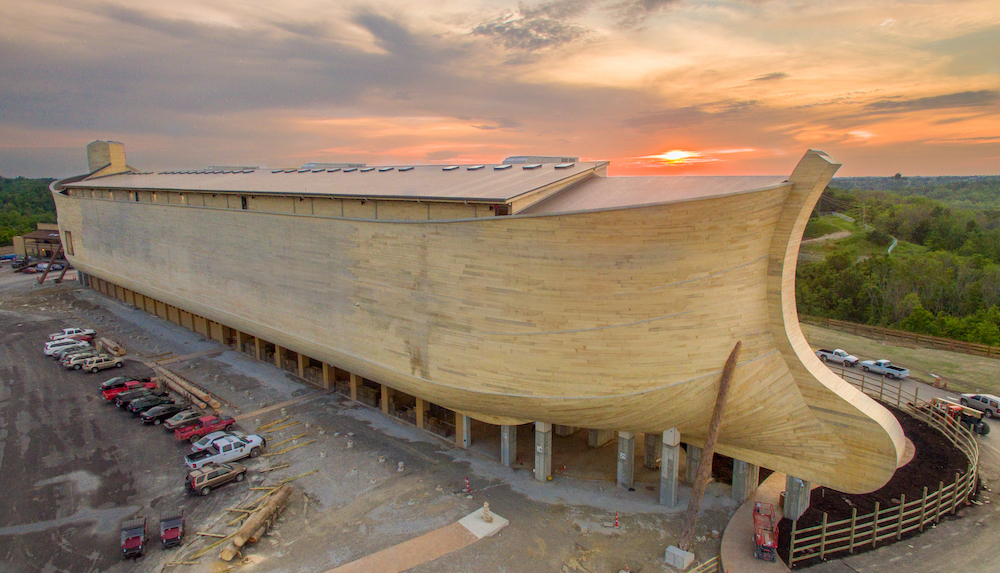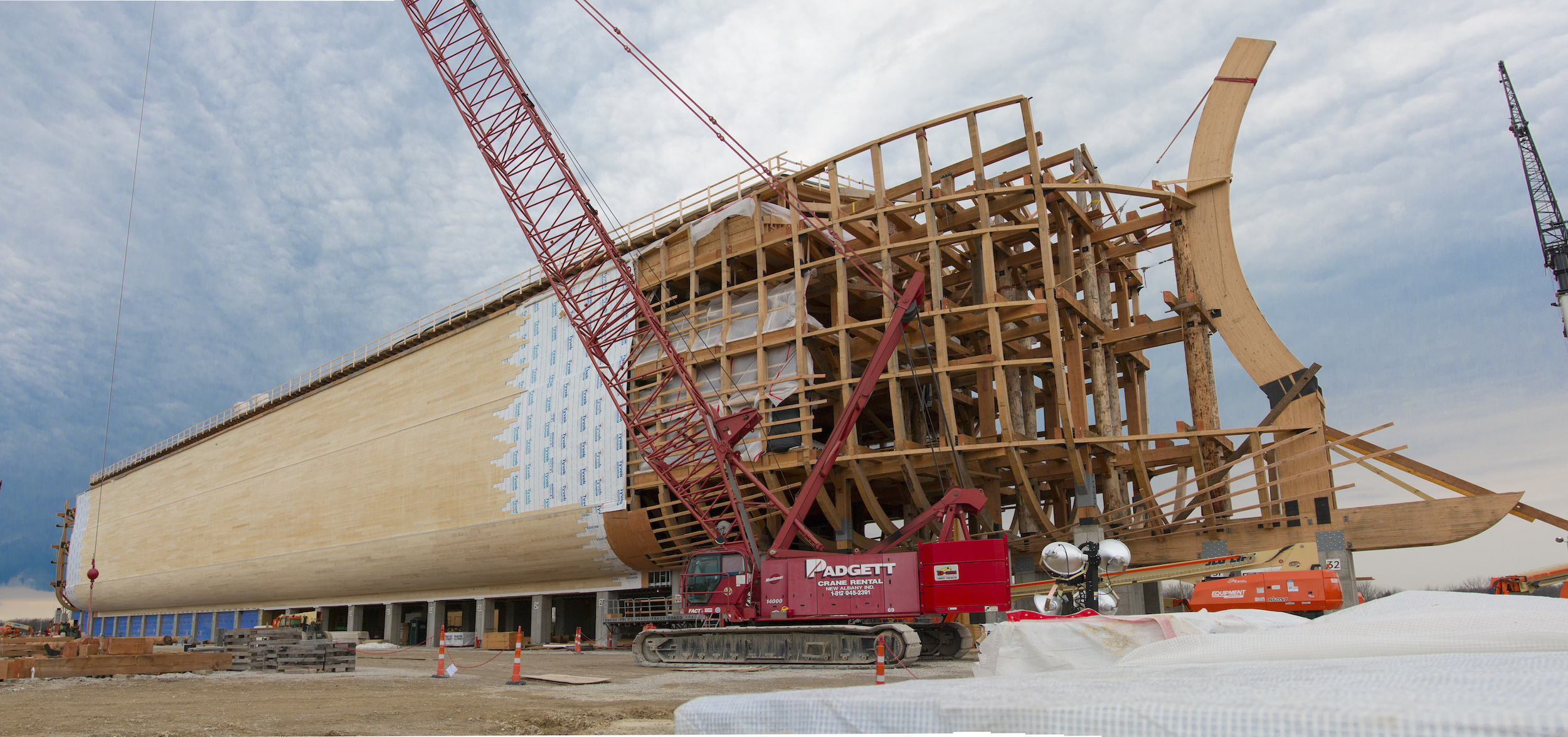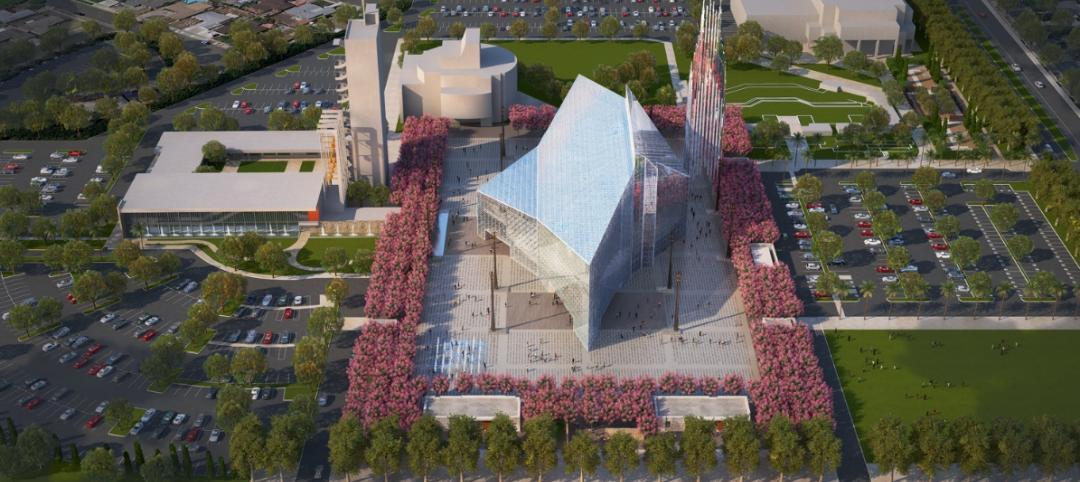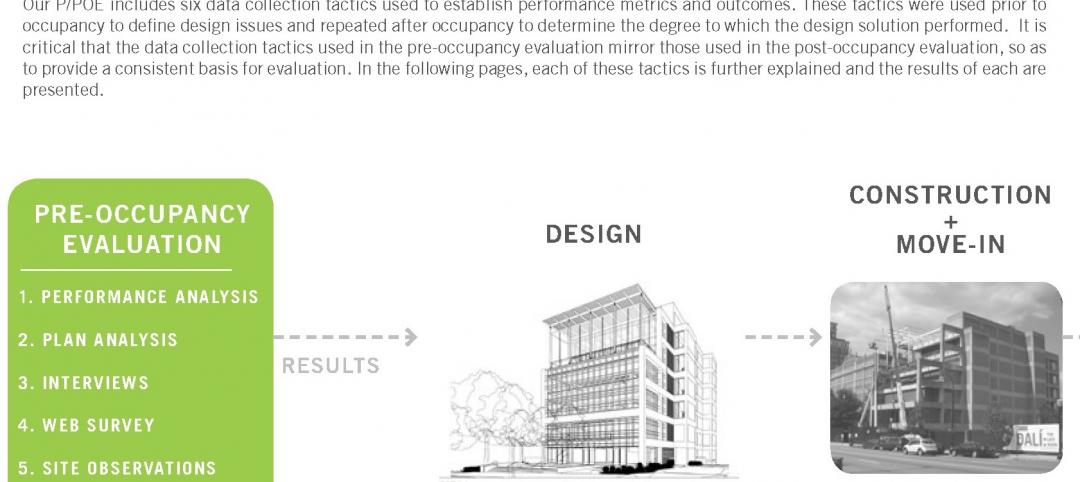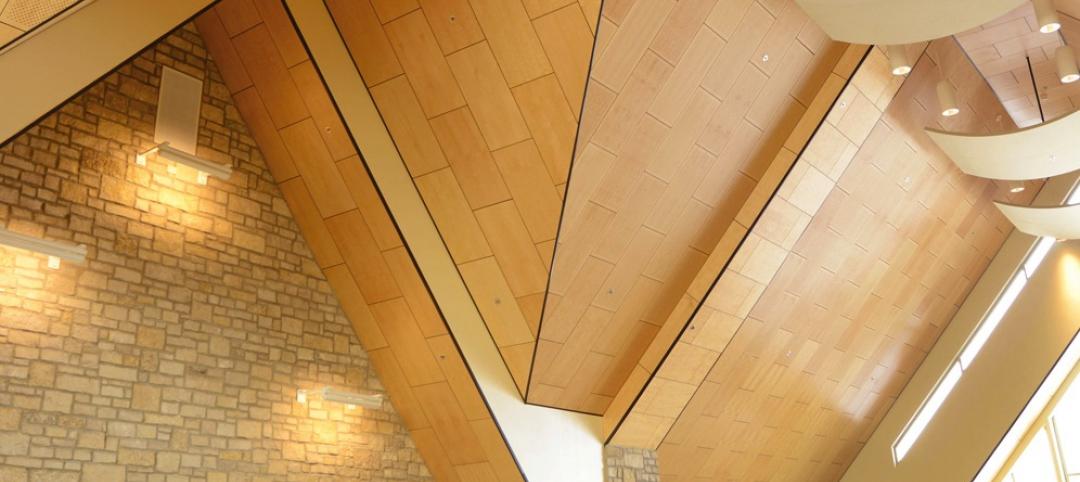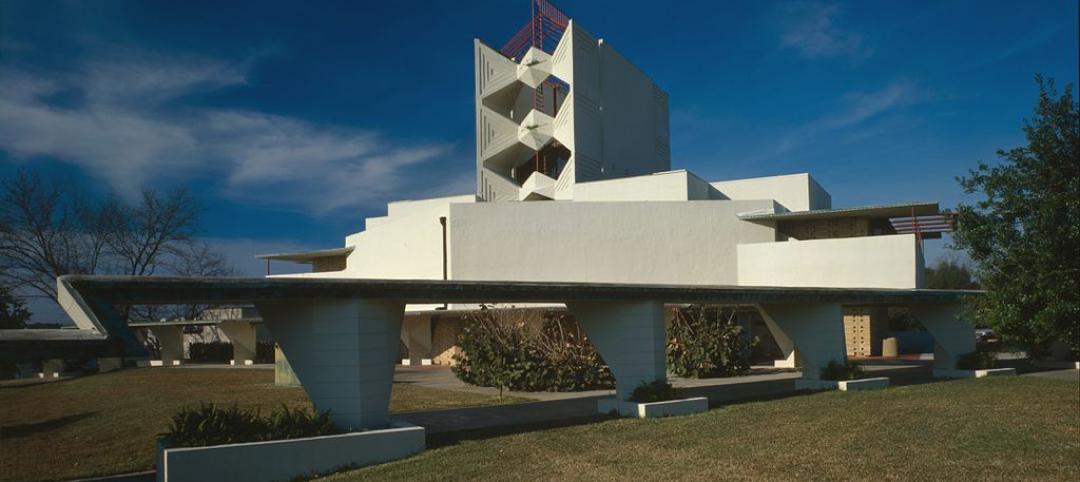A new to-scale replica of Noah's Ark will not need to survive another Great Flood. It is big enough, though, to probably hold two of every animal.
Ark Encounter, a historical museum dedicated to the legendary Bible story, was built to the size specified in scripture: 510 feet long, 86 feet wide, and 94 feet high. It is be the largest timber-framed structure in the world, according to its designers and developers. The Ark, which opened last week in Williamstown, Ky., can hold up to 10,000 people (the plan is to limit the capacity to 3,000, though), and a 1,600-seat restaurant is being set up on the top deck.
The project cost $100 million and took a little more than one year to build. The timber frame construction designed and supplied by Colorado Timberframe. The Ark required 3.1 million board feet of timber, and more than 1.2 million board feet of square timbers were needed for the frame itself.
As much reclaimed timber was used as possible, including a few of the 50-foot Engelmann spruce logs at the Ark’s center.
“Wood is such a versatile product,” Keenan Tompkins, owner of Colorado Timberframe, said in a statement. “If you look back through history, there are plenty of examples of extremely large structures, some of which are even still standing today. So it’s kind of going back to incorporating and using that, but applying it in a modern context and having it meet the modern engineering standards that we have today.”
Construction crews included 10 workers on site in Williamstown, 25 builders in a workshop in Denver, and 75 Amish craftsmen employed by the project’s contractor.
The Troyer Group was the project’s architect, and Accoya wood was used for the exterior cladding.
The Ark is expecting more than one million visitors during its first year.
Related Stories
| Oct 12, 2014
AIA 2030 commitment: Five years on, are we any closer to net-zero?
This year marks the fifth anniversary of the American Institute of Architects’ effort to have architecture firms voluntarily pledge net-zero energy design for all their buildings by 2030.
| Oct 9, 2014
Steven Holl's 'intersecting spheres' scheme for Taipei necropolis gets green light
The schematic design has been approved for the 50 000-sm Arrival Hall and Oceanic Pavilion for the Taiwan ChinPaoSan Necropolis.
| Oct 1, 2014
Philip Johnson's iconic Crystal Cathedral to be modernized, made 'intrinsically Catholic'
Johnson Fain and Rios Clementi Hale Studios have been commissioned by the Roman Catholic Diocese of Orange to upgrade the all-glass church in Garden Grove, Calif. The church acquired the property in 2012.
| Sep 24, 2014
Architecture billings see continued strength, led by institutional sector
On the heels of recording its strongest pace of growth since 2007, there continues to be an increasing level of demand for design services signaled in the latest Architecture Billings Index.
| Sep 22, 2014
4 keys to effective post-occupancy evaluations
Perkins+Will's Janice Barnes covers the four steps that designers should take to create POEs that provide design direction and measure design effectiveness.
| Sep 22, 2014
Sound selections: 12 great choices for ceilings and acoustical walls
From metal mesh panels to concealed-suspension ceilings, here's our roundup of the latest acoustical ceiling and wall products.
| Sep 9, 2014
Using Facebook to transform workplace design
As part of our ongoing studies of how building design influences human behavior in today’s social media-driven world, HOK’s workplace strategists had an idea: Leverage the power of social media to collect data about how people feel about their workplaces and the type of spaces they need to succeed.
| Sep 9, 2014
Ranked: Top religious sector AEC firms [2014 Giants 300 Report]
Brasfield & Gorrie, Gensler, and Jacobs top BD+C's rankings of the nation's largest religious sector design and construction firms, as reported in the 2014 Giants 300 Report.
| Sep 9, 2014
Frank Lloyd Wright's Annie Pfeiffer Chapel brought back to life using 3D printing
Restoration of the Frank Lloyd Wright-designed chapel was made possible (and affordable) thanks to 3D printing.
| Sep 3, 2014
New designation launched to streamline LEED review process
The LEED Proven Provider designation is designed to minimize the need for additional work during the project review process.


